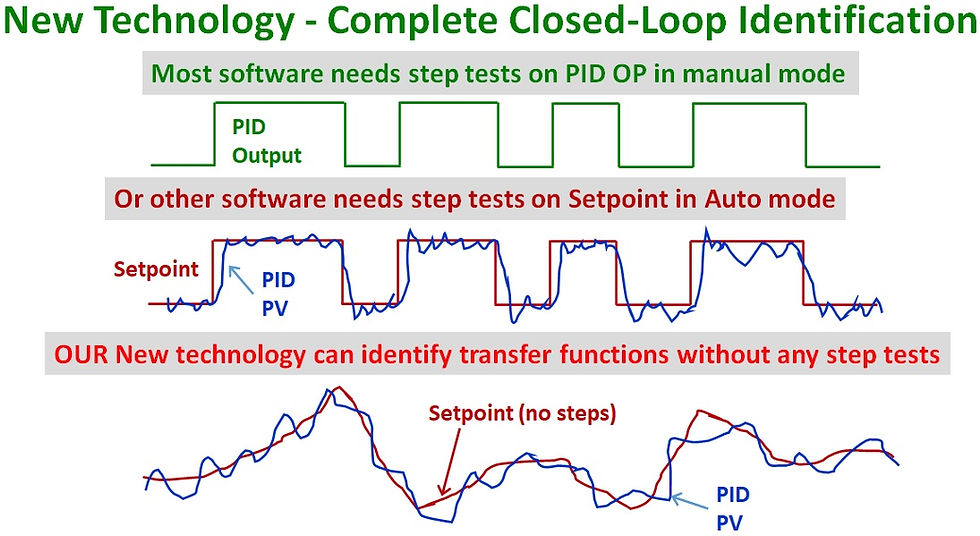Advanced Process Control: How to Optimize Your Manufacturing Processes
- picontrolsolutions
- Aug 23, 2022
- 5 min read

Advanced process control (APC) is a technique that helps manufacturers achieve and maintain optimal production performance. Advanced process control may be the answer if you're looking for ways to optimize your manufacturing processes. In this blog post, we'll discuss what advanced process control is and how you can use it to improve your manufacturing operations. We'll also provide some tips on how to get started with APC.
What is Advanced Process Control (APC)?
Advanced process control is a technology that helps manufacturers optimize their production processes. It allows for more accurate and efficient production, which leads to improved product quality. APC systems use advanced algorithms to monitor and control process variables in real-time.
There are many benefits of using advanced process control in manufacturing, including:
- Improved product quality
- Increased productivity
- Reduced scrap and rework
- Lower energy consumption
-Improved safety and environmental compliance
APC can be used in various manufacturing industries, such as food and beverage, pharmaceuticals, chemicals, plastics, metals, automotive, semiconductors, and electronics.
How Can APC Be Used to Optimize Your Manufacturing Processes and Improve Product Quality?
There are several ways that advanced process control can be used to optimize your manufacturing processes and improve product quality. One way is by using APC to monitor process variables in real-time. It allows you to quickly identify and correct any issues that may arise during production. Another way APC can optimize manufacturing processes is by controlling process parameters. It helps ensure that your production process runs optimally, improving product quality. Finally, advanced process control can be used to automate your manufacturing processes. It saves you time and money and reduces the risk of human error. Automating your manufacturing processes with advanced process control can help you achieve consistent product quality and increased productivity.
What Are Some of The Benefits of Using APC in Manufacturing Environments?
There are many benefits of using advanced process control in manufacturing environments. One advantage is that APC can help improve product quality. Advanced process control systems can monitor and control process variables in real-time, allowing you to quickly identify and correct any issues that may arise during production, improving product quality and increasing productivity.
Another benefit of advanced process control is that it can help reduce scrap and rework. By controlling process parameters, advanced process control systems can help ensure that your production process runs at optimal levels, leading to less scrap and rework.
Finally, advanced process control can also help lower energy consumption. Automating your manufacturing processes with advanced process control can help you achieve consistent product quality and increased productivity while reducing energy consumption.
How Does APC Work, and What Are The Main Components of an APC System?
Advanced process control systems use algorithms to monitor and control process variables in real-time. They allow for more accurate and efficient production, which leads to improved product quality and increased productivity.
The main components of an advanced process control system include:
- Sensors: Sensors measure process variables such as temperature, pressure, flow rate, etc.
- Process Controllers: Process controllers use the data from the sensors to control the manufacturing process.
- Advanced Algorithms: Advanced algorithms optimize the manufacturing process by monitoring and controlling process variables in real-time.
What Are Some Tips for Getting Started with APC?
If you're interested in using advanced process control to improve your manufacturing operations, there are a few things to keep in mind. First, advanced process control is not a "set it and forget it" solution - you'll need to invest time and resources into monitoring your process and making adjustments as needed. Second, don't be afraid to ask for help from experts who can guide you through the APC implementation process.
Third, remember that advanced process control is not a silver bullet - there is no one-size-fits-all solution. Every manufacturing process is different, so you'll need to tailor your APC approach to your specific needs.
By following these tips, you can get started on the path to optimizing your manufacturing processes with advanced process control.
How Do You Choose the Right APC Solution For Your Business Needs?
Advanced process control can be implemented in several ways, each with its advantages and disadvantages. The most crucial factor in choosing the right advanced process control solution for your business is first to understand your needs. Once you know what you need, you can narrow your options and choose the best APC solution for your business. Here are a few factors to keep in mind when selecting an advanced process control solution:
- Ease of use: The advanced process control solution you choose should be easy to use. If it's not, you'll likely never fully utilize its potential, wasting time and money.
- Features: Consider the features offered by different advanced process control solutions and choose one that provides the needed parts.
- Compatibility: Ensure the advanced process control solution you choose is compatible with your existing hardware and software. Otherwise, you'll have to invest in new hardware and software, which can be costly.
- Support: Choose an advanced process control solution with the manufacturer's support. This way, if you ever have any problems, you can get help from someone who knows the product inside and out.
By keeping these factors in mind when choosing an advanced process control solution, you can be sure to select the best one for your business needs.
What Are Some Common Challenges Associated With Implementing APC Solutions in a Manufacturing Environment, and How Can You Overcome Them?
A number of challenges can come up when implementing advanced process control solutions in a manufacturing environment. Here are a few of the most common challenges and how to overcome them:
- Lack of Understanding: One of the biggest challenges is that many people don't understand advanced process control or how it works. This lack of understanding can lead to employees' resistance, making it difficult to implement an APC solution. The best way to overcome this challenge is to educate employees on advanced process control and how it can benefit the company.
- Cost: Another challenge associated with advanced process control is the cost. APC solutions can be expensive, and some companies may not have the budget to invest in them. However, there are several ways to finance an APC solution, such as leasing or financing options.
- Implementation: Implementing an advanced process control solution can be challenging since it requires changing existing processes and procedures. To overcome this challenge, you should have a clear plan and communicate the program to all employees affected by the change.
- Training: Training employees on advanced process control solutions can be challenging because the answers can be complex and require specific training. To overcome this challenge, partnering with a vendor who can provide training and support is essential.
By keeping these challenges in mind, you can be better prepared for when they come up while implementing an advanced process control solution.







Comments